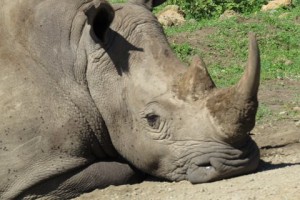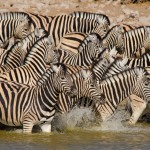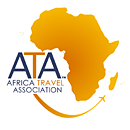Responsible Tourism – How Responsible Are We?
Responsible Tourism has become one the most important marketing tools for Travel Agents and Tour Operators globally. In every brochure there is undoubtedly a section on how companies employ Responsible Tourism strategies into their tours. When push comes to shove; how many of these Travel Agents and Tour Operators actually enforce and support these strategies on the ground? Or has competition for the tourism dollar resulted in turning a blind eye.
A clear indication that Responsible Travel Policy is not translating into practice is in Game Parks throughout Africa. Big Cats, like lions and cheetahs, having to change their routine. Instead of hunting in the evening or very early morning they are starting to hunt at midday. This is not a natural wonder nor an adaptation from Mother Nature but simply a matter of survival.
There is nothing more exciting than seeing a lion or cheetah stalking gazelles or zebra in the early morning light. It is not uncommon for one safari vehicle to spot this and drive as close to the action as possible. Unfortunately before long there are tens of vehicles crowded around the poor unsuspecting hungry Cat – the prey is alerted and the Cat wanders off; hungry. Responsible tourism principles are easily forgotten.
The saving grace for Big Cats is that tourists get hungry too. At around midday all the safari vehicles head back to their lodges for a feast while the hungry Cat stays hungry unless she too decides to hunt in the middle of the day.
Hunting during the hottest part of the day is particularly risky for Big Cats. They exert far too much energy, become dehydrated and if they miss this kill may be too weak to try another. Their ability to sprint in hot exposed conditions is halved from hunting in cooler conditions. The chances of Cats being successful in their hunt are less than 50% from hunting early morning or evening.
The Cheetah is the fastest mammal on earth. It carries very little reserves and therefore must hunt regularly to keep energy levels high. A cheetah has a 1:2 hunt success rate. If the cheetah has a lesser rate than 1:3 hunt success rate it doesn’t have enough energy for another chase and will starve to death.
Why is this happening in this day in age? Surely humankind has learnt something over the past 100 years about protecting precious species and responsible tourism.
A simple answer would be to blame the local operator. Obviously, if you book your safari through a Travel Agent the contract is passed to a local African operator. It is far too easy to blame the little guy – the African driver/guide who only wants you to have a great safari. However, it is far more complicated than that.
The tourism industry is very competitive and each Agent and Operator is looking for a way to outdo his competitor. The magic words Responsible Tourism plays straight into the hand of the consumer. Everyone wants to feel the product they purchased will do some good or at very least no harm to the environment, people or culture.
Even with responsible travelers intentions being nothing but honorable at time of booking their African safari. Responsible tourism may be challenged when out on safari.
This pressure is placed on the driver/guide of the safari. If you ask anyone fresh off the plane in Nairobi about what their number 1 desire to see in Africa – the Big 5 is invariably the response.
Local operators are constantly placed under massive stress to deliver the product and ensure clients have a once in a lifetime experience. Contracts are too easily won and lost over such trivia as one client complaint to the Agent that the safari did not deliver the goods. Excellent service, food, facilities and organisation do not count for much if the clients do not see the Big 5.
Agents and Foreign Tour Operators place enormous pressure on local operators to deliver above expectations. Resulting in local operators breaking fundamental responsible tourism rules like following Cats while hunting, driving off designated paths and driving far too close to wildlife. All in the pursuit of the perfect photo and all in breach of Responsible Tourism policy. This dilemma local operators face is simple. Break the rules and keep the contract or stick to the rules and lose it.
Booking tours through Agents has been the norm for many years. However, when a tour is booked through an Agent the consumer rarely knows who the actual Operator at the other end is. The Agent is there to make sales and often, sadly, will give miss-information to the potential client in order to sell that safari.
Way Forward
The simplest solution to ensure Responsible Tourism Policy translates into Practice is to have realistic expectations – sure many a times our clients have seen the Big 5 without damaging the environment or stressing wildlife. It is important for consumers to take responsibility and not insist or put undue pressure on local tour operators or their driver/guides to deliver the ultimate. African game parks are a natural refuge for wildlife, while everyone wants to see a lion kill, or a leopard up the tree or cheetahs hunting down a gazelle, what we must never lose sight of are game parks are there to protect wildlife for generations to come. Unless tourists and agents start taking an active role in responsible tourism we risk losing these already critically endangered animals forever.
Africa Expedition Support takes responsible tourism very seriously click here to read a brief overview of our commitment to Responsible Tourism.







